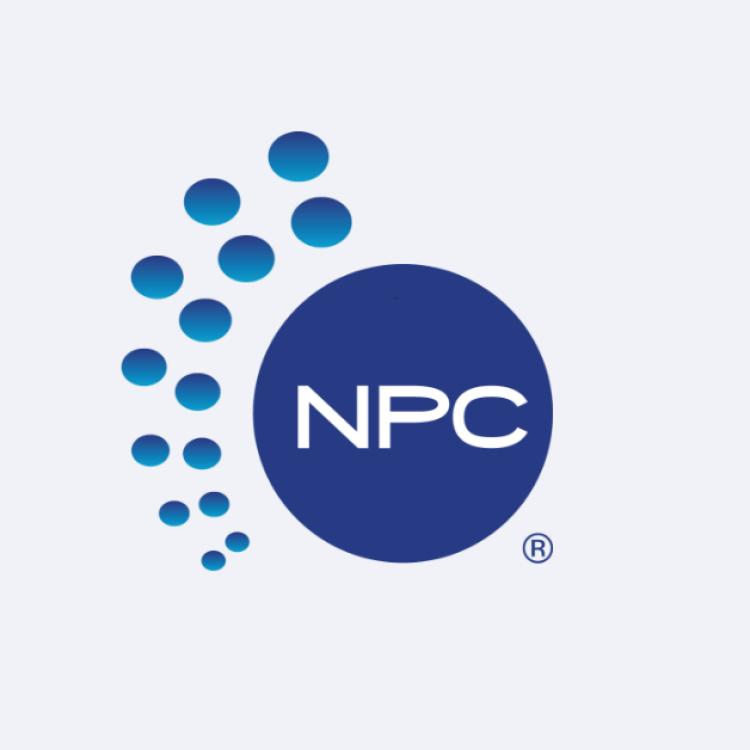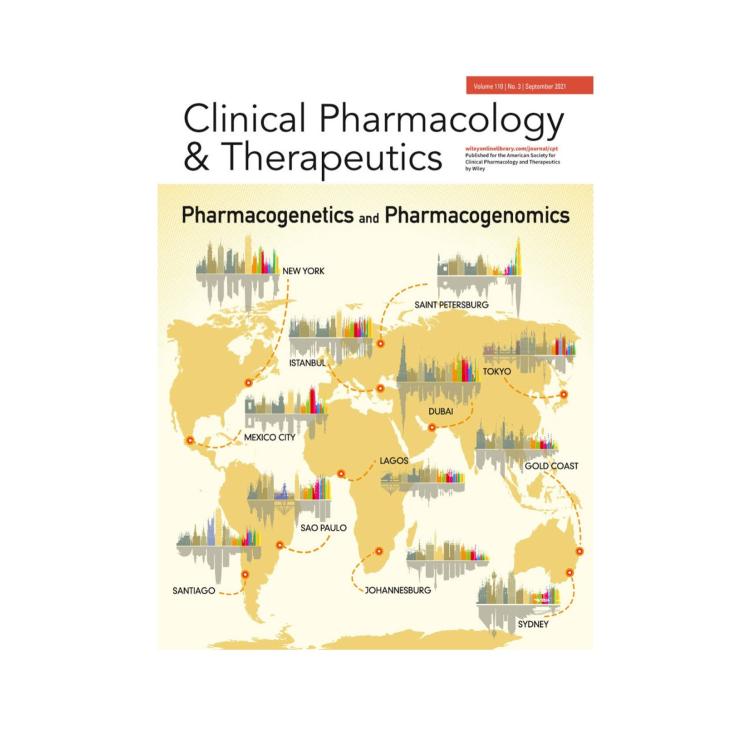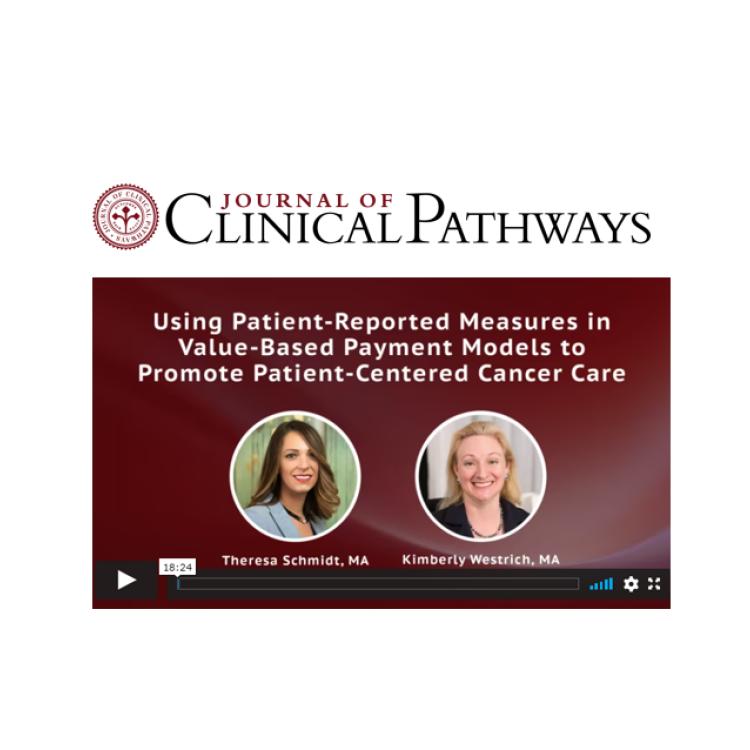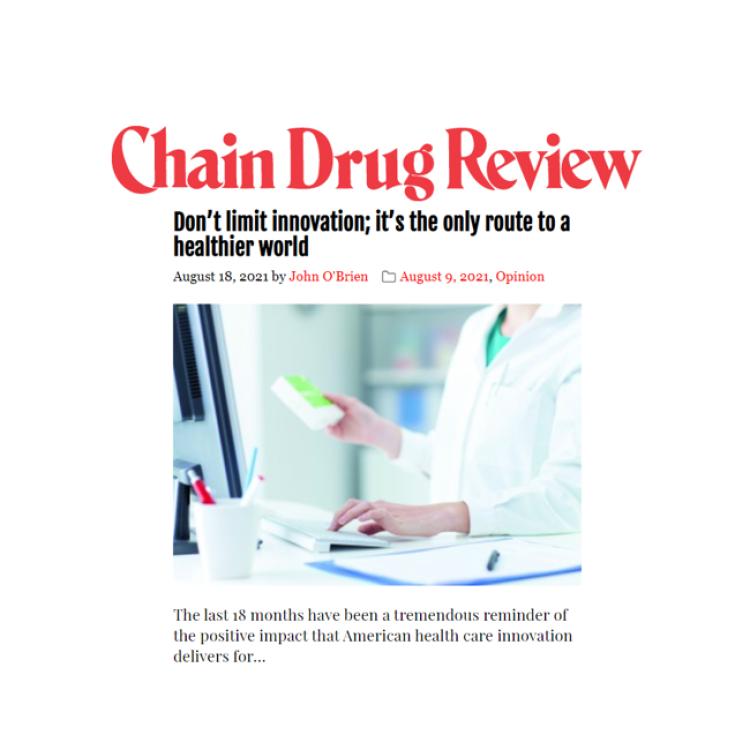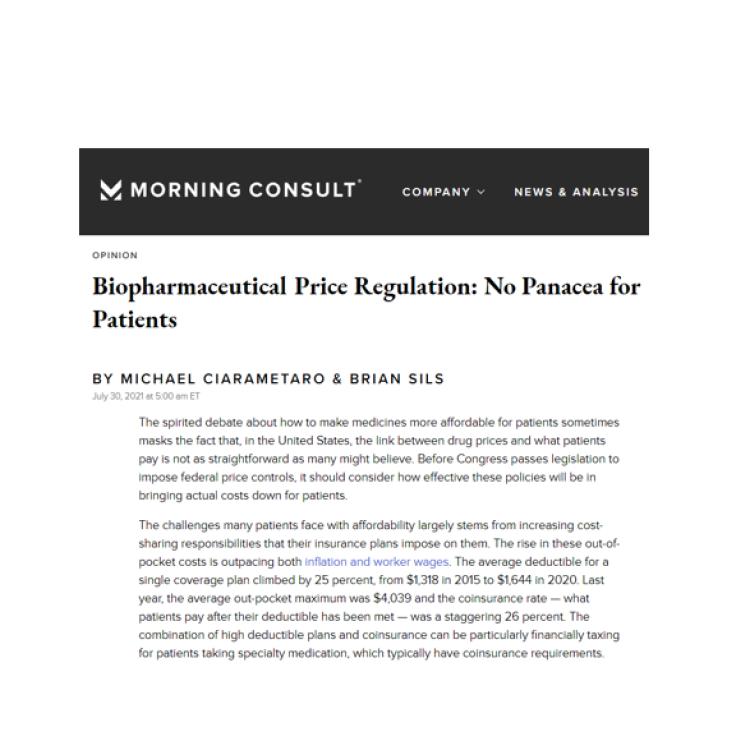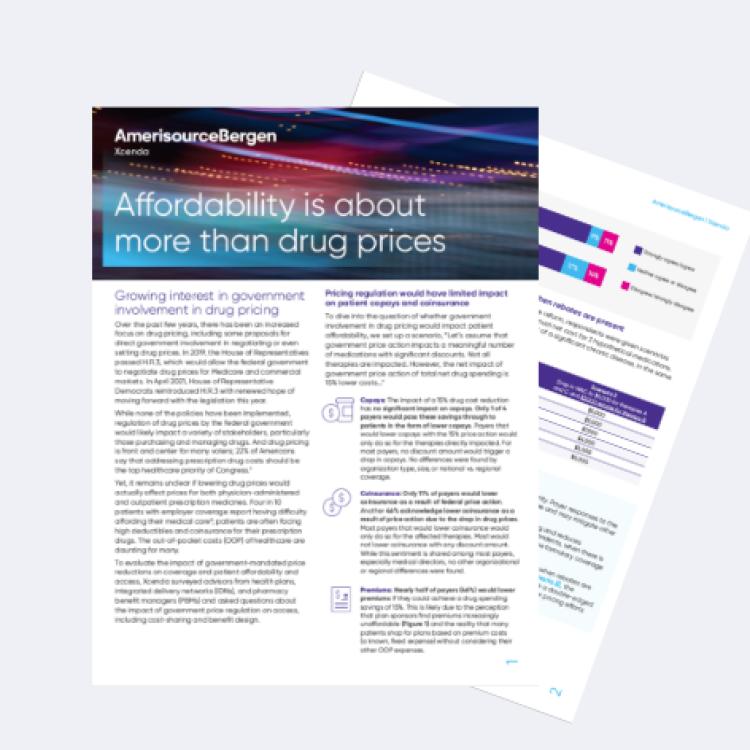Resources
The National Pharmaceutical Council (NPC) is a health policy research organization dedicated to the advancement of good evidence and science, and to fostering an environment in the United States that supports medical innovation.
Filter by:
Topic
Topic
- Accountable Care Organizations
- Alternative Payment Models
- Biopharmaceutical Innovation
- Bundled Payments
- Clinical Pathways
- Decision Frameworks
- Elements of Value
- Evidence for Decision Making
- Formulary/Benefit Design
- Formulary Development
- Good Practices for Evidence
- Health Care Quality Measures
- Health Spending
- Health Spend Management
- High-Deductible Health Plans
- Impact on Outcome & Spending
- Individual Treatment Effects & Personalized Access
- Low-Value Care
- Pandemic Response
- Patient Cost Sharing
- Paying for Cures
- Policy & Regulatory Barriers
- Real-World Data
- Real-World Evidence
- Regulatory Barriers & Challenges
- Understanding Health Spending
- Utilization Management & Step Therapy
- Value-Based Contracts
- Value-Based Insurance Design
- Value Assessment
- Value Assessment Frameworks
- Value Assessment Methods
Resource Type
Audience
Audience
Display Only
Showing 588 Results
Health Care Stakeholders Can Learn from Pharmacists’ Patient-Centered Perspective
In a commentary for Pharmacy Times, NPC's John M. O’Brien describes the commitment of pharmacists to ensuring patient access to needed medicines and says other health care stakeholders…
AMCP Partnership Forum: Exploring Paths to Equitable Benefit Design
Mitigating racial health disparities is critical to advancing equitable access to health care, including medications and other therapies. NPC joined other experts at an AMCP Partnership Forum earlier…
Employers Embrace Opportunity to Increase Patient Access to Preventive Care for Chronic Conditions Through Pre-Deductible Coverage
Expanding pre-deductible health coverage for HSA-eligible plans could benefit millions of Americans suffering from chronic conditions as well as lower health care costs by reducing barriers to…
Reference Pricing Isn’t Worth the Risk to Innovation and Patient Health
A Health Affairs Blog co-authored by NPC's Michael Ciarametaro explores the tradeoffs and risks associated with international reference pricing and suggests alternative policy approaches that…
At the Heart of It: How Innovation Drives Improved Patient Outcomes
In honor of World Heart Day, NPC looks at how innovative medical interventions have vastly improved cardiovascular disease outcomes.
NPC Submits Comments on Medicare Physician Fee Schedule Proposed Rule
NPC submitted comments on the Medicare Program’s CY 2022 Physician Fee Schedule proposed rule recommending opportunities to enhance understanding of patient-reported outcomes and address barriers to…
NPC in Health Affairs: Payment Innovation Not Keeping Up
In a Health Affairs Blog article, NPC and MIT researchers outline how a new rule from CMS may fall short of what is needed to improve patient access to durable cell and gene therapies that target…
A Healthier Country Means Lower Health Care Spending
The U.S. spends twice as much per person on health care compared to other wealthy countries. While higher U.S. health care prices play a role in this disparity, they are not the only cause. A new NPC…
Avoiding Methodological Faults in Real-World Evidence
Researchers from Brigham and Women’s Hospital, Harvard Medical Center and NPC found that the potential for biased findings in RWE studies increases substantially in the absence of a rigorous and…
Drug Innovations Are Delivering for Patients. We Need Innovation in How They’re Paid For.
In a commentary for PharmaBoardroom, NPC's John M. O’Brien explains why we need a focused effort from all health care stakeholders to innovate on how we pay for vital medicines.
Webcast: Priorities for Patient-Centered Care in Oncology
On a recent webcast, NPC Vice President of Health Services Research Kimberly Westrich discusses the importance of patient-centered care and the benefits and opportunities of incorporating…
Rethinking Benefit Design: Eliminating Inefficient Hurdles
Reforming health benefits by overhauling existing utilization management practices and adjusting patient cost-sharing to incentivize high-value care would help achieve more affordable, patient…
Working Together to Deliver Innovation for Patients During COVID-19 and Beyond
What's at risk if we limit innovation? Read the commentary from NPC's John O'Brien in Chain Drug Review.
Building a Better Evidence Base to Address the Social Determinants of Health
The COVID-19 pandemic has put a spotlight on the pressing need to address social determinants of health (SDOH). NPC's Dr. Dubois examines the gaps within the existing evidence base and how…
Why Drug Rebates Aren’t Working for Patients
During a recent webinar, NPC President and CEO John M. O'Brien discusses how the Medicare Part D rebate system creates barriers to affordable care for patients.
Missing: Patient Input in Drug Coverage Policy
A new study by NPC and the Center for the Evaluation of Value and Risk in Health at Tufts Medical Center found that health insurance plans do not ask patients for input when developing specialty drug…
NPC in Morning Consult: Biopharmaceutical Price Regulation - No Panacea for Patients
In a column published in Morning Consult, NPC's research team explains why potential government involvement in drug pricing would be unlikely to increase patient affordability.
On World Hepatitis Day, Looking at Innovation That Goes Beyond a Pill
Michael Ciarametaro, Vice President of Research at NPC, reflects on how the scientific revolution of hepatitis C led to a corresponding reimbursement revolution that became a fertile ground for large…
What the Data Are Saying on Drug Pricing and Utilization
NPC President and CEO John O'Brien discusses the IQVIA Institute’s new report and takes a closer look at the factors that are driving medication use and health care spending in the United States.
Affordability Is About More Than Drug Prices
A research survey found that potential government involvement in drug pricing would be unlikely to increase patient affordability.





